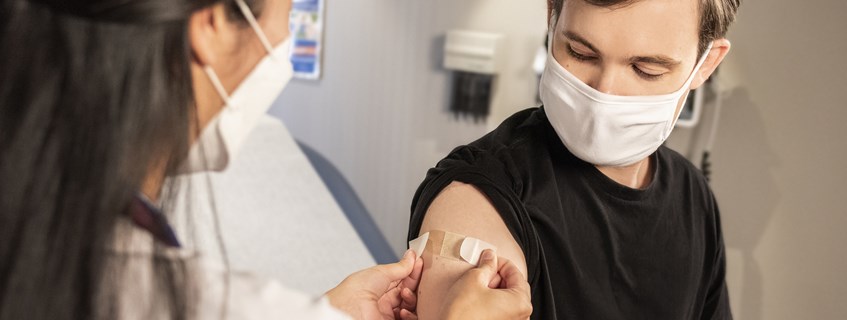
Portugal Health Insurance
In Portugal, the Serviço Nacional de Saúde (SNS) stands as the backbone of the national public healthcare system. It's important to note that the SNS primarily caters to mainland Portugal, while the Azores and Madeira have distinct healthcare systems in place. The overarching authority responsible for the operation of the SNS and the assurance of public health insurance for all residents is the Ministério de Saúde, the Ministry of Health in Portugal.
Portugal takes pride in offering a high standard of healthcare services, placing significant emphasis on preventative medicine, including critical screenings for diseases like cancer. One noteworthy aspect is the sizable population of healthcare professionals, particularly doctors, who diligently serve the country.
Despite the laudable quality of care, Portugal found itself in the 22nd position among 32 countries on FREOPP's 2022 World Index of Healthcare Innovation. This less favorable ranking was primarily attributed to affordability concerns. However, it's worth highlighting that the government has taken measures to address this issue by eliminating user fees on the public healthcare scheme, making healthcare more accessible to the public.
For those contemplating a stay in Portugal, be it short-term or long-term, securing health insurance is imperative. International residents and workers in Portugal are entitled to the same healthcare rights as the nationals. This privilege is contingent upon legal residency and active contributions to the social security system.
In contrast, tourists and non-residents must make arrangements for health insurance independently. If you hail from the European Union (EU), European Economic Area (EEA), or Switzerland, the European Health Insurance Card (EHIC) can be utilized during your visit to Portugal.
However, certain countries have entered into bilateral healthcare agreements with Portugal, enabling their citizens to access medical care with their home insurance. These countries include Andorra, Brazil, Canada (specifically Quebec), Cape Verde, Morocco, and Tunisia. For individuals from countries not covered by such agreements, obtaining private travel health insurance is a necessity during their stay in Portugal.
While the possession of health insurance is critical, Portugal does provide a safety net. Even without health insurance, you can still receive necessary treatment at a Portuguese hospital or emergency room. It's essential to be aware that in such cases, individuals should anticipate covering all incurred medical costs.
For those engaged in work in Portugal, public health insurance is a valuable benefit earned through contributions to the Instituto da Solidariedade e da Segurança Social (Social Security Institute).
The Portuguese public health insurance system is designed to encompass anyone residing legally in Portugal for more than 90 days. This comprehensive scheme includes coverage for medical care, encompassing doctors, specialists, and emergency services, with only a handful of exceptions.
Public health insurance extends its coverage to various groups, including employees and their dependents, retirees, short-term visitors with the appropriate documentation, EU/EEA citizens utilizing the EHIC, and students who have the legal right to reside in Portugal.
Medical care under the public health insurance umbrella is quite extensive. It covers costs when you visit a doctor, and you can conveniently schedule an appointment at your local health center online, over the phone, or in person. Additionally, specialists are also covered, although you might need a referral from your primary physician to access their services.
In the event of a medical emergency requiring an ambulance, dialing 112 is the appropriate course of action. Portugal ensures that you can find an open emergency department regardless of the time of day. Treatment for such emergencies is provided without cost, with a single exception: if a patient uses emergency services without a referral from the SNS and isn't admitted to the hospital as a result, they will be responsible for the associated medical fees.
When it comes to mental healthcare in Portugal, the SNS offers a valuable resource in the form of a free 24/7 psychological support hotline. This service allows individuals to connect with a clinical psychologist over the phone. To access the hotline, simply call the SNS24 main line at 808 24 24 24 and press 4 for psychological counseling (aconselhamento psicológico). It's important to note that wait times for mental healthcare appointments can be rather lengthy due to a limited number of psychiatrists in Portugal. For those seeking expedited access to a psychiatrist, private health insurance may be a viable option.
Expectant parents can find solace in the fact that maternity care in Portugal is well-catered. All checkups and emergency medical attention are provided free of charge under public health insurance. Routine maternity care during pregnancy is primarily offered at local hospitals or health centers. Expecting parents receive a Pregnancy Booklet (Boletim de Saúde da Grávida) to track their baby's progress.
Dental and eye care fall under a slightly different arrangement. The SNS only covers dental care for specific groups that the Portuguese government deems as vulnerable. Members of these groups can receive dental vouchers to assist with the associated costs. When it comes to eye care, you can access an eye care professional under Portuguese public insurance through your local health center. However, waiting times for checkups or non-urgent issues can be somewhat extended. It's important to be aware that the SNS does not cover optical care, necessitating out-of-pocket payments. Fortunately, various providers in Portugal offer separate vision insurance, which can be a prudent choice for those who wear glasses or contacts.
Securing Portuguese public health insurance is generally straightforward. For individuals working in Portugal, their employer typically enrolls them in the social security system, automatically qualifying them for public health insurance once contributions commence. However, self-employed individuals need to directly register with the Social Security Institute.
Upon successful registration, individuals must visit their local health center (centro de saúde), where they will be assigned to a doctor. Registration with a doctor is a requisite before scheduling any appointments.
For individuals awaiting their residence permit, obtaining a certificate from their local parish (freguesia) that confirms 90 days of residence in Portugal is a crucial step. This, along with the necessary documentation, is then presented to the local health center to acquire the SNS user number (número de utente do SNS).
Private health insurance is also a prominent feature of the healthcare landscape in Portugal, with approximately 25% of the population covered as of 2017. Often, companies in Portugal offer private insurance plans to their employees. However, it's worth noting that such coverage may cease when changing employers, potentially leading to gaps in coverage for specific aspects of healthcare. It's essential to be aware that private health insurance is particularly important for those who do not meet the criteria for the state healthcare system. This includes individuals on tourist or short-stay visas.
Private health insurance, despite the affordability of public healthcare, has its unique advantages. Many expatriates in Portugal opt for private insurance to cover services like dental or vision care. Private hospitals and clinics offer the benefit of shorter waiting times compared to public services. Additionally, private health insurance often includes supplementary benefits such as repatriation or evacuation, coverage for non-urgent healthcare needs abroad, and the convenience of direct payment for treatment in any country.
- General Mortgage Basics in Portugal
- What to Expect When Buying Property in Madeira Funchal
- Discovering the Best Neighborhoods to Buy Property in Funchal, Madeira
- Madeira vs. America – Key Differences You Need to Know
- 10 Essential Questions to Ask Before Buying Property in Funchal, Madeira
- Understanding Real Estate Taxes in Madeira

